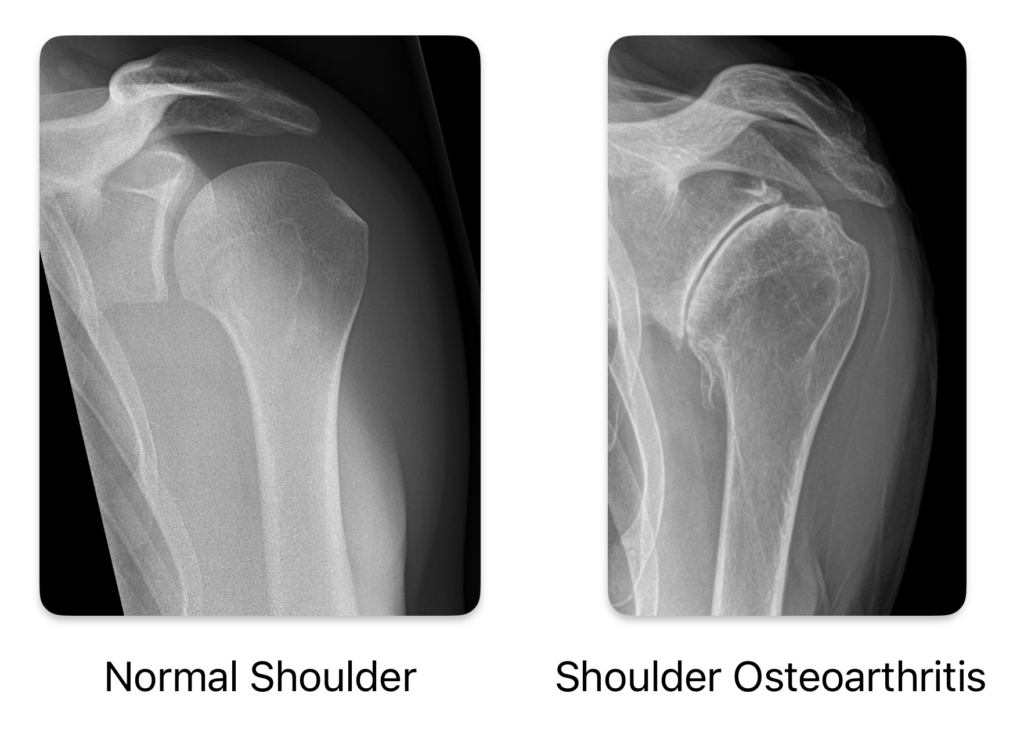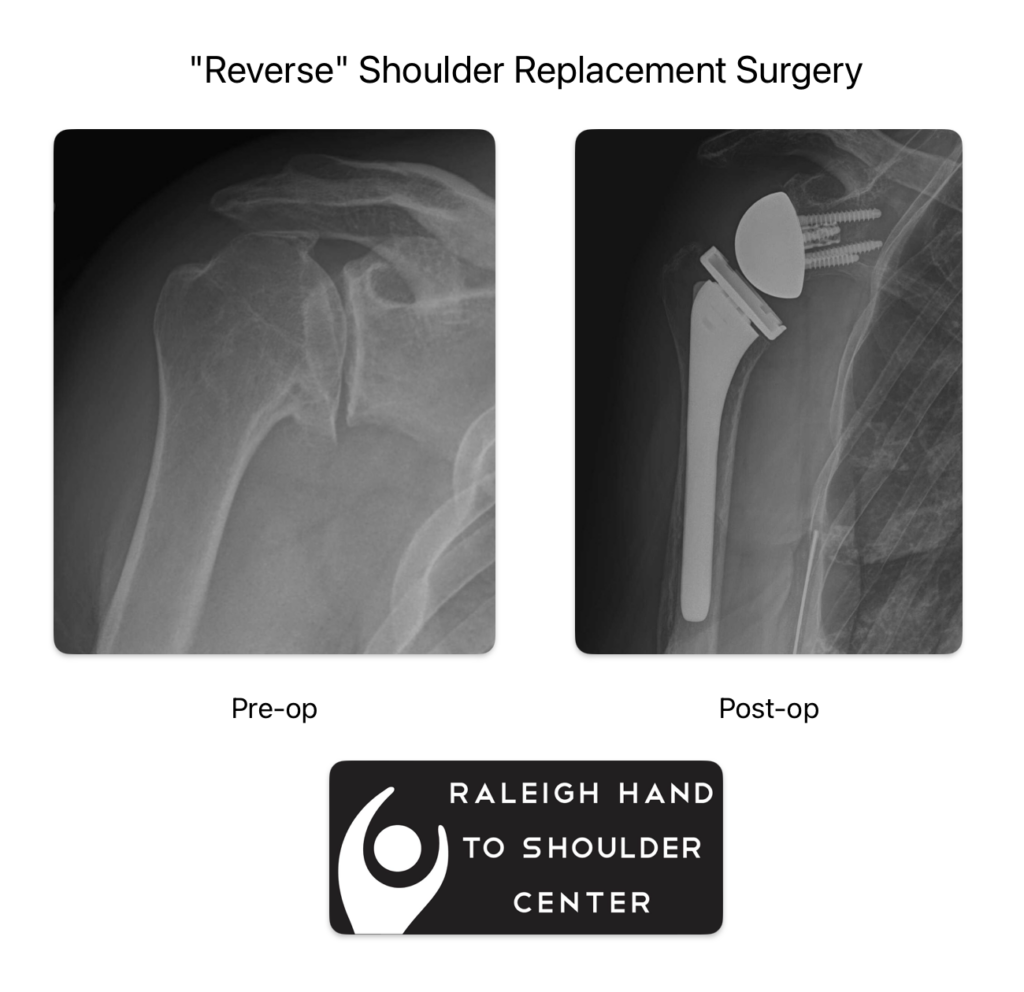What is frozen shoulder? Frozen shoulder, also called “adhesive capsulitis,” is an inflammatory…
Shoulder Arthritis is inflammation of a joint with loss of cartilage (the smooth surface covering the end of each bone in the joint). In some severe cases, bone spurs can form and wear down the surrounding bone at the joint. There are several forms of arthritis. The most common type is osteoarthritis, which is typical age-related “wear and tear” of the joint also called degenerative arthritis. Other forms of arthritis include autoimmune arthritis such as rheumatoid arthritis. Post-traumatic arthritis occurs after a serious injury to a joint with damage of the cartilage or after a chronic rotator cuff tear. Infectious arthritis occurs after a joint infection.
Arthritis can affect any joint, including the shoulder. Although arthritis is often painful, occasionally the deterioration of the joint does not cause pain and goes unnoticed. Arthritis is often a gradual process taking years to develop. Typical symptoms of shoulder arthritis include pain with motion of the joint, and sometimes there can be pain at rest. There may be stiffness or limited ability to move the joint and some patients have popping or clicking when moving the joint.
What are the Shoulder Arthritis Treatment options?
Typically, treatment for arthritis includes decreasing the pain and inflammation in more mild cases. Joint replacement is recommended in more severe cases that have not responded to less invasive treatment. Anti-inflammatory medicine such as oral NSAIDs (Ibuprofen, Naproxen or Meloxicam) can help reduce the pain and inflammation of an arthritic joint. Topical NSAIDs such as Diclofenac or Voltaren Gel are another option to help with arthritis pain, however the shoulder joint is quite deep under muscle, and topical ointments may not be able to penetrate into the joint. Anti-inflammatory supplements such as Glucosamine, turmeric, CBD, or tart cherry extract have helped reduce arthritis pain and inflammation in some people. Cortisone injections are another option to temporarily help the pain from shoulder arthritis. Other treatments include: gentle range of motion exercises, heat, massage, and physical therapy. Typically we do not recommend wearing a sling or immobilizing a shoulder joint with arthritis, as this typically causes worsening stiffness and pain in the shoulder.

Unfortunately there is still no way to regrow cartilage that has been destroyed by arthritis. There is much research on this topic with some hopeful prospects of growing cartilage in a lab to be implanted in the joint and in using stem cells. There are several companies that claim they can regrow your cartilage by injecting stem cells, however this has not proven to be true in independent research studies. It seems that injecting stem cells may help temporarily decrease inflammation and pain, but unfortunately has not been able to regrow cartilage destroyed by arthritis. Raleigh Hand to Shoulder Center doctors do not inject stem cells for arthritis.
As a last resort, a total shoulder replacement is an option. For most cases of arthritis an anatomic total shoulder replacement is the best option for patients. However, for patients with arthritis related to a chronic rotator cuff tear, a reverse shoulder replacement is the best option to improve pain and restore motion and function of the shoulder joint. Shoulder replacement surgery is typically performed as an outpatient procedure in otherwise healthy patients, though some patients may need to spend the night at the facility. After surgery, the shoulder is immobilized for a while in a sling during the initial healing phase (typically 4-6 weeks) and then physical therapy is utilized to regain motion, strength and function of the shoulder.

If you have shoulder pain or think you may have shoulder arthritis, we encourage you to make an appointment with one of our physicians for further evaluation of your problem. Call Raleigh Hand to Shoulder Center to be evaluated by a board-certified upper extremity orthopedic surgeon.

All physicians are board-certified by the American Board of Orthopedic Surgery.


